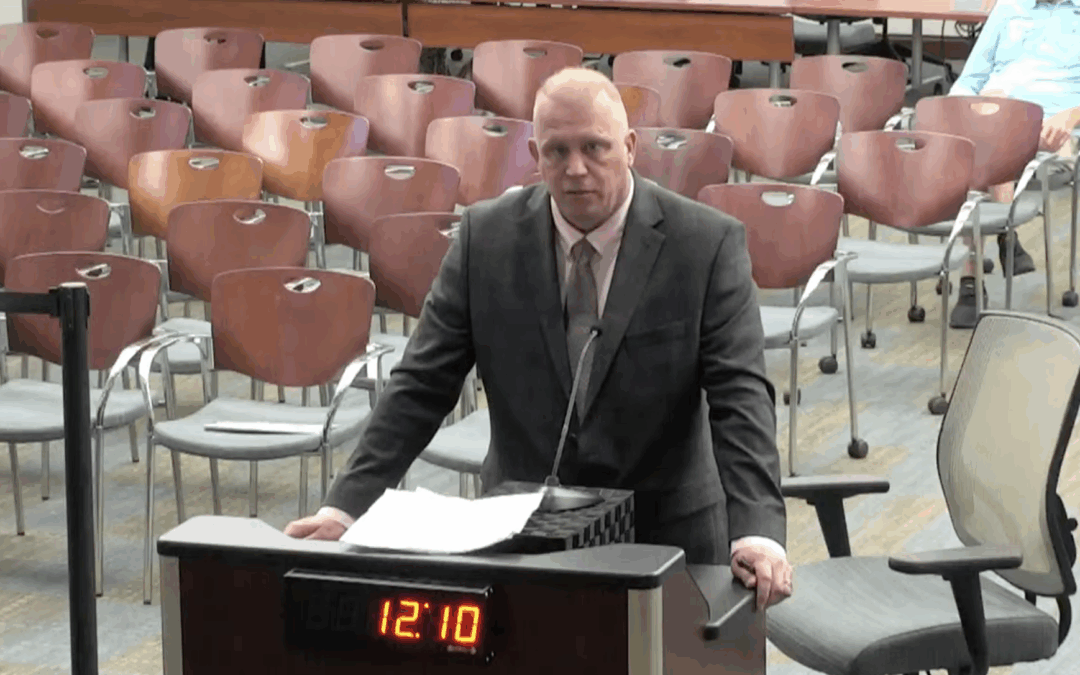During a recent public presentation, City Manager finalist Richard Hough offered a detailed overview of his approach to city leadership, focusing on the key opportunities and challenges that lie ahead for the City of Palm Coast. Drawing on his extensive background in local government, Hough’s presentation centered around four core areas: first-year leadership priorities, infrastructure, staffing and organizational culture, and economic development.
Laying the Groundwork: The First-Year Agenda
Hough began by addressing what he described as the “traditional first-year landscape” for a new city manager. He emphasized that the early months of leadership are critical for building credibility, fostering relationships, and establishing a leadership style that inspires trust and collaboration.
Among the immediate opportunities, Hough highlighted:
-
Establishing trust with both the City Council and city staff, which he noted is essential for effective governance.
-
Setting the tone for the organization’s culture and leadership style.
-
Developing the first municipal budget under his leadership, aligning fiscal priorities with the city’s strategic vision.
-
Identifying quick wins, or actionable improvements, to show responsiveness and build momentum.
He also outlined several challenges that often accompany a transition in leadership. These included navigating entrenched organizational silos, managing the expectations and communication preferences of City Council members, understanding the local political climate, and balancing the pressure of immediate operational issues with long-term strategic goals.
Infrastructure: Balancing Investment and Responsiveness
Hough then shifted his focus to Palm Coast’s infrastructure needs—an area he sees as both a significant challenge and an opportunity for strategic advancement.
Infrastructure opportunities outlined in his presentation included:
-
Executing targeted capital investments in systems such as advanced metering infrastructure (AMI), water and wastewater treatment facilities, and stormwater infrastructure.
-
Proactively seeking and leveraging grant funding to accelerate long-term capital improvement projects.
-
Strengthening coordination between departments and supporting project management teams to ensure timely and efficient execution.
However, the road forward is not without its obstacles. Hough acknowledged key challenges in this space, including aging infrastructure and a legacy of deferred maintenance, as well as the need to address consent decree compliance and utility capacity planning. He also noted the importance of stormwater system responsiveness, especially as the city continues to expand westward into areas with increased environmental sensitivity.
Organizational Development and Staffing
Turning his attention to internal operations, Hough spoke candidly about the evolving workforce landscape and the cultural shifts needed to drive innovation and accountability within city government.
He laid out several opportunities to strengthen the organization:
-
Conducting a citywide SWOT analysis and developing key performance indicators to better measure success.
-
Launching a succession planning initiative and investing in workforce development to build leadership from within.
-
Encouraging internal engagement through town hall meetings and informal walkthroughs to improve morale and gather staff input.
The challenges in this area are common across the public sector: retaining staff in an increasingly competitive labor market, recruiting talent—especially for technical and specialized roles—and breaking down internal communication silos. Hough also pointed to the need for a cultural shift that supports performance-based management and a more innovative mindset throughout the organization.
Economic Development: Growth with Purpose
In the final segment of his presentation, Hough addressed Palm Coast’s economic landscape, outlining a path toward sustainable and diversified growth.
He shared a number of strategic opportunities, including:
-
Expanding the workforce development roundtable to strengthen collaboration with local schools, businesses, and training institutions.
-
Presenting a comprehensive economic diversification roadmap to guide future investment and job creation.
-
Attracting industry to the city’s westward growth areas and ensuring that economic expansion aligns with broader city goals.
-
Coordinating capital investments to support long-term economic development strategies.
Hough also acknowledged several economic challenges facing Palm Coast, including the need to balance housing and infrastructure growth, contend with regional competition for talent and investment, and address the lack of shovel-ready development sites. Additionally, he pointed out that changing state-level policies may impact how local governments plan and manage economic development in the coming years.
Looking Ahead
Throughout his presentation, Richard Hough emphasized a leadership style grounded in collaboration, transparency, and results. His proposed approach to city management aims to balance the urgency of immediate needs with a clear, long-term vision—one that prioritizes smart infrastructure investment, workforce development, economic growth, and above all, trust in government.
As the City of Palm Coast moves forward in its city manager selection process, Hough’s outlook provides insight into the type of leadership he thinks he could bring to the role.
To view the entire public interview, click here.










